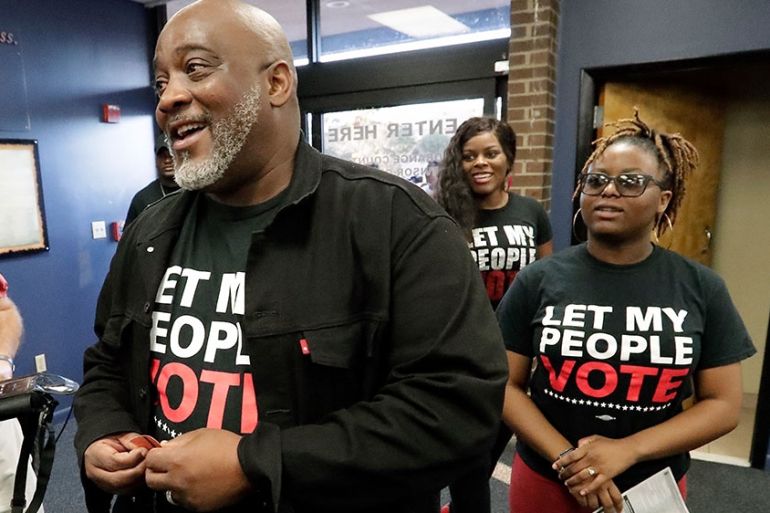Over a million Florida ex-convicts can begin registering to vote
US state voted in November to restore voting rights to most ex-convicts who have served all terms of their sentence.

The voting rights of many Florida ex-convicts were restored on Tuesday, and some are celebrating by registering on the first day they become eligible.
“I want to cry,” said Yraida Guanipa, a 57-year-old former convict who now heads the YG Institute NGO, which helps people with criminal histories reintegrate into society.
Keep reading
list of 4 itemsFears of discrimination in Thailand despite looming same sex marriage bill
Hong Kong legislature passes tough new national security law
Why is India’s Citizenship Amendment Act so controversial?
Speaking to AFP news agency, Guanipa had just left the office of the Miami-Dade County Elections Department, where she registered to vote early in the morning after nine years of struggling to regain the right.
Florida’s new law could add as many as 1.4 million people to the battleground state’s voter rolls. In November, voters approved Amendment 4, which restored the right to vote to ex-convicts who have served all terms of their sentence, and did not commit sex crimes or murder.
The Florida Rights Restoration Coalition is trying to mobilise people to register online or at the election supervisors’ offices. The organisation’s President Desmond Meade says he doesn’t anticipate any legal challenges.
“The road back to responsible citizenship has been one of my life’s greatest challenges,” Meade said in a statement.
“The struggle to achieve access to democracy for myself and more than a million fellow Floridians has been long,” he added.
![Former felon Yolanda Wilcox, left, fills out a voter registration form at the Supervisor of Elections in Orlando, Florida [John Raoux/AP Photo]](/wp-content/uploads/2019/01/f20e634b498941a784c4969142048b8a_18.jpeg)
The American Civil Liberties Union of Florida says former felons don’t need to present proof that they completed their sentence; they can simply fill out the existing application, signing under oath that their voting rights have been restored.
Ten percent of the adult population in Florida, including one in five African Americans, could not vote prior to the lifting of the restriction, which dated back 150 years and disproportionally affected black and Hispanic communities.
“I didn’t feel like a full citizen, I felt like a second-class citizen,” Daniel Torna, a financial analyst who also went to register in Miami, told AFP.
“I pay taxes, I’m active in the community, I work, I go to school, I do everything other people do, I just couldn’t vote,” said Torna, who completed his sentence in 2010 for a drug-linked crime.